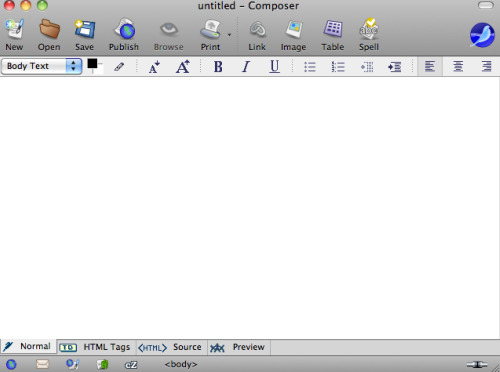The Mozilla project just released Sea Monkey – the newest version of the integrated web suite from the open source provider. I am not aware of the origin of the name, but this product appears as the updated version of a product that has been around for some time. At one time I was a dedicated user because I liked the idea of a “suite” of applications and found the mail and composer applications to be especially valuable. I used to use the Composer application in classes because it was a free tool for “composing” web pages (see below).
BTW, this is a mature application with none of the clunkiness you sometimes see in open source projects. I am pleased to see this project advancing because it seems to fill a niche.
Spending some time exploring the new offering did reveal just how accustomed one becomes to the way a particular tool works. Sea Monkey will not accept the Diigo Toolbar which has become a natural part of my work flow when using Firefox. I think it has become fashionable to refer to this as an affordance – making something easy shapes our behavior. The Diigolet (a bookmarklet) does work so there is still a way to save Diigo bookmarks.
I liked Composer because it filled a niche. At the time the less expensive web authoring tools seemed to be disappearing (e.g., PageMill, HomePage) and it did not seem productive to expect educators to master Dreamweaver or GoLive (alas now gone as well). The world has changed. The less demanding end of the authoring continuum now seems focused on online tools (e.g, Google Sites) or desktop and template based software such as iWeb. My thinking about classroom applications has come to focus more and more on efficiency. The tool is not really the focus and the core question often ends up being how much time will it take in learning and applying a tool to accomplish an educational end.
![]()
